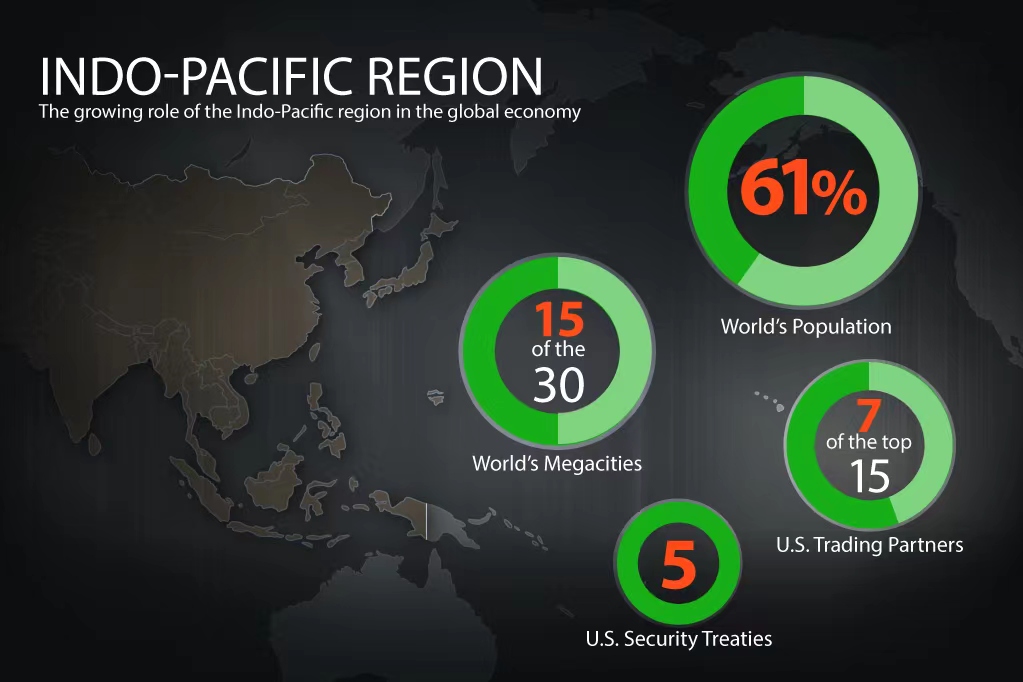
The intense geopolitical conflict currently erupting in Europe should be seen as a war against the old order, with the U.S. government targeting Russian institutions and individuals involved in information and communication technologies.
On March 31, the U.S. State Department stated sanctions against Russian technology companies and cyber actors, stating that it would take the lead in imposing sanctions on 21 Russian entities and 13 Russian individuals involved in software and communications technology, supercomputer manufacturing, chip and navigation equipment manufacturing, to further block Russia’s access to Western technology and financial resources.

In addition, the United States continues to strengthen its network of multilateral sanctions against Russia. Wally Adeyemo, Deputy Secretary of the US Department of the Treasury, recently visited Brussels to coordinate closely with the EU, aiming at expanding the scope of joint sanctions and improving joint sanctions mechanisms in the field of digital information and communications.
The U.S. intensifies digital competition against China
Under the increasing U.S. strategic competition with China, digital suppression of China is also deepening. The U.S. government’s distrust of technology companies with a Chinese background continues to rise.
On March 16, the Federal Communications Commission (FCC) decided to revoke the authorization of China’s Pacific Networks and its wholly-owned subsidiary ComNet to provide telecommunications services in the United States. In addition, the U.S. is reviewing whether Chinese technology giant Alibaba’s cloud service business, Alibaba Cloud, poses a national security risk, claiming that there is a risk that sensitive data, including information on U.S. citizens and institutions, could be “stolen” by the Chinese government.
In addition to increasing prevention efforts, the U.S. is also taking an offensive approach by strengthening its critical capacity building in the digital sector. On March 22, the U.S. Senate voted to pass the Next Generation Telecommunications Act, S.3014. The bill would authorize the formation of a “Next Generation Telecommunications Commission” to promote U.S. government support for research and development of advanced communications technologies. The Commission would also develop a national telecommunications strategy to maintain U.S. leadership in global information, ensure the resilience of U.S. telecommunications networks, promote cooperation between the U.S. government and the private sector and U.S. allies, and enhance the diversity and security of the ICT supply chain.
Semiconductors are a top priority for the U.S. On March 21, the U.S. Department of Commerce held a meeting on how to promote semiconductor R&D and manufacturing capabilities, with Commerce Secretary Raimondo, Republican Senator Todd Young, Democratic Congresswoman Doris Matsui, former Trump assistant for national security affairs Herbert McMaster, retired lieutenant general, and former deputy secretary of state for economic affairs in the Trump administration Keith Krach, etc., attended the meeting. Raimondo emphasized that semiconductors are the backbone of the economy, and their importance is growing with the digitization of the global economy. To advance in the field of semiconductors, the Biden administration even asked for advice from senior officials during the Trump administration.
It is worth noting that the issue of digital assets such as digital currency has also become the focus of the United States to promote digital competition. On March 9, Biden signed an Executive Order on Ensuring Responsible Development of Digital Assets. The executive order proposes a series of specific initiatives, including addressing illicit financing and national security risks associated with the illegal use of digital assets, maintaining U.S. leadership in the global financial system, and accelerating the Federal Reserve’s digital currency research and development.
Increasingly competitive rules in the digital sphere
The Biden administration and its allies, including the United Kingdom, the European Union, and Japan, are accelerating the development of rules for the digital economy. In late March, U.S. Trade Representative David Deitch and U.K. International Trade Secretary Anne-Marie Trevelyan co-chaired the first joint U.S./UK Dialogues on the Future of Atlantic Trade. They proposed to develop digital trade rules for G7 countries in the U.K.’s presidency of the G7. On March 25, the U.S. and the European Commission announced that they had reached an agreement in principle on a new Trans-Atlantic Data Privacy Framework, and the two sides would continue to deepen their partnership as democracies and further develop policy cooperation on the digital economy.

In the Indo-Pacific direction, the Biden administration hopes to use the digital economy chapter of the U.S.-Mexico-Canada Agreement and the U.S.-Japan Digital Trade Agreement as a model to develop digital rules under the Indo-Pacific Economic Framework. The Indo-Pacific Economic Framework is a concept proposed by Biden in September 2021, and specific proposals are expected to be announced this year. The Indo-Pacific Economic Framework will promote so-called democratic and transparent digital governance standards, promote the free flow of data and privacy protection, and prohibit and limit data localization requirements in areas such as financial services. The arrangement will also focus on improving digital economy accessibility for SMEs in the Indo-Pacific region, promoting the implementation of APEC cross-border privacy rules and other agreements, addressing cyber attacks and cyber theft, and managing fraudulent online business practices. In addition, the digital governance of the Indo-Pacific Economic Framework also involves setting standards and rules for the use of advanced technologies such as artificial intelligence and financial technologies and promoting coordination among relevant countries on export control of sensitive technologies.
It is worth noting that in addition to the eager support of Japan and Australia for the Indo-Pacific Economic Framework, South Korea, which has a significant influence in the digital field, has also shown a positive attitude. With the rise of the pro-US leader Yoon Seok-yeol, South Korea will further lean on the US to counterbalance China and increase its ties with the quadrilateral mechanism of the US, Japan, India, and Australia. South Korea has proposed to promote the U.S.-Korea alliance as a comprehensive strategic alliance, with cooperation in the digital field as a key element. According to the Korean Ministry of Economy and Finance, the United States will account for the largest share of the country’s foreign direct investment in 2021, jumping 81.8% year on year, with the semiconductor industry being a key target.
In short, the digital economy and its closely related advanced technologies have become the battlefield of strategic competition among major powers. The U.S. and the EU have closely linked the game in the digital sphere with ideological and geopolitical factors, and are increasingly focusing on dealing with the so-called “digital authoritarianism”. The Russian-Ukrainian conflict is a strong catalyst for this trend. In the coming period, more rising countries may face a growing digital cold war.
(Source: Politico, US Department of Defense)



